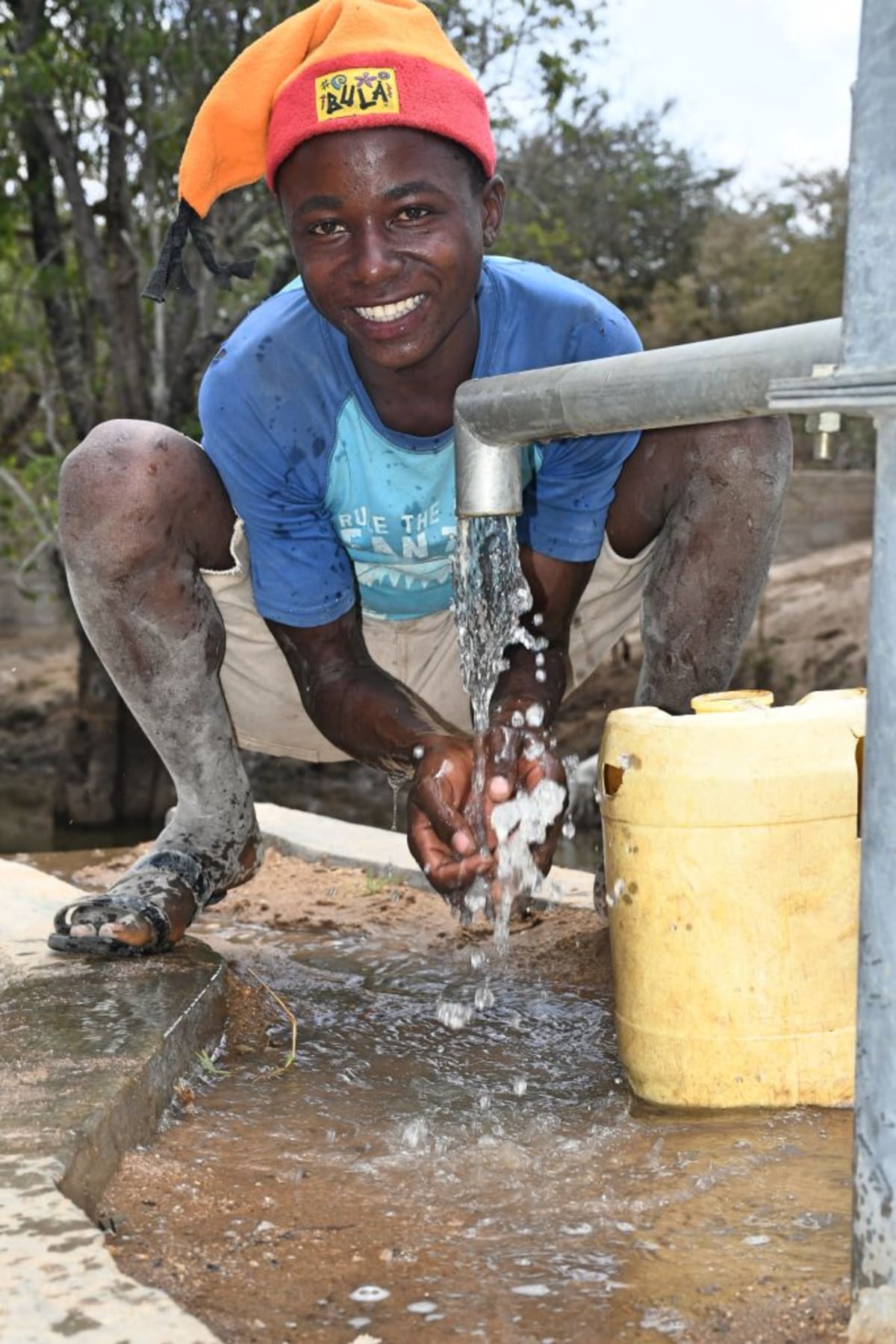The 192 people of Kalawa community have to walk several miles each way to fetch water for their families. They set aside whole days for the task because they know it will take hours of walking in the scorching sun. The task often leaves them too exhausted for anything else.
Sometimes their poor health means they don't have the energy to make the journey to the community's far-away protected well. In that case, they make do with an unmonitored water source, from which the water is brown, salty, and contaminated.
"I would be happy if I get a place I would be fetching clean water with ease for my consumption," said 40-year-old Florenca Wambua. "I [would] walk [a] shorter distance, hence I [would] be able to attend to other chores back at home [and] prepare my children to attend school on time."
The community members often experience stomach problems whenever they drink in the surface water without boiling it. They also experience regular diarrhea, further deteriorating their health.
Because of the water scarcity issues here, the community members are not able to grow crops easily, which is especially bad news for these people, who practice subsistence farming to feed their families.
"Water is all that I would love to have in abundance," said 7-year-old Mumbe. "Drinking clean water will help in improving my health and keeping me strong as well as focused to achieve my dreams."
Reliable Water for Kalawa Community
Our main entry point into Kalawa Community has been the Kalawa People Living with HIV/AIDS Self-Help Group, which is comprised of households that are working together to address water and food scarcity in their region. These members will be our hands and feet in both constructing water projects and spreading the message of good hygiene and sanitation to everyone.
Hand-Dug Well
This particular hand-dug well will be built adjacent to a sand dam project, which will supply clean drinking water once it rains. We have supplied the group with the tools needed for excavation. With the guidance of our artisans and mechanics, the excavated well will be cased, sealed with a well pad, and then finished with a new AfriDev pump.
Excavation takes a month or more on average, depending on the nature of the rock beneath. Construction of the well lining and installation of the pump takes 12 days maximum. The well will be lined with a concrete wall including perforations so that once it rains, water will filter in from the sand dam.
This well will bring clean water closer to families.
New Knowledge
These community members currently do their best to practice good hygiene and sanitation, but their severe lack of water has been a big hindrance to reaching their fullest potential.
We will hold hygiene and sanitation training sessions with the Self-Help Group and other community members to teach about important hygiene practices and daily habits to establish at the personal, household, and community level. This training will help to ensure that participants have the knowledge they need to make the most out of their new water point as soon as water is flowing.
One of the most important topics we plan to cover is the handling, storage, and treatment of water. Having a clean water source will be extremely helpful, but it is useless if water gets contaminated by the time it is consumed. We will also emphasize the importance of handwashing.
We and the community strongly believe that all of these components will work together to improve living standards here, which will help to unlock the potential for these community members to live better, healthier lives.
We typically work with self-help groups for 3 to 5 years on multiple water projects. We will conduct follow-up visits and refresher trainings during this period and remain in contact with the group after all of the projects are completed to support their efforts to improve sanitation and hygiene.

 Protected Dug Well
Protected Dug Well
 Rehabilitation Project
Rehabilitation Project






























